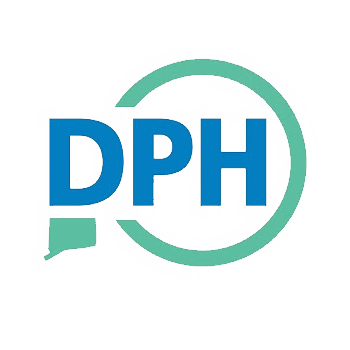Press Releases
12/15/2020
DPH Removes Advisory for Fish Caught in Lower Farmington River After Reviewing Latest Round of Data
Level of PFAS in Fish Tissue Declines Dramatically from Levels Following 2019 Spill of AFFF Foam into River
The Connecticut Department of Public Health (DPH) today is removing the consumption advisory for fish caught in the lower Farmington River that has been in place since June 2019 in response to a June 2019 spill of Aqueous Film Forming Foam (AFFF) into the river. On June 14, 2019 approximately 20,000 gallons of fire-suppressing AFFF entered the river from the Signature Flight Hangar at Bradley International Airport. The foam contained per- and polyfluorinated alkyl substances (PFAS), and DPH had previously issued an advisory not to consume fish caught in the lower Farmington River (downstream from the Rainbow Dam in the Town of Windsor to the confluence with the Connecticut River) due to elevated levels of PFAS collected in fish tissue samples. Long term exposure to PFAS may be associated with increased cholesterol levels, a change in immune response, developmental effects, increased chance of thyroid disease and an increased chance of cancer, especially kidney and testicular cancers.After several rounds of sampling, the most recent test results of fish tissue collected downstream from where AFFF entered the Farmington River indicated that the PFAS levels have decreased significantly. The latest tissue samples measured 18 ppb (parts per billion), a decline of more than 71% from samples taken in September 2019 and below 20 ppb which is the cutoff for unlimited consumption in Connecticut’s consumption advisory guidelines for PFAS in fish. Due to these results, DPH has removed the current fish advisory for the lower section of the Farmington River.
The removal of the fish consumption advisory for the lower Farmington River is based on validated test results of fish samples from the lower Farmington River received by DPH and the Connecticut Department of Energy and Environmental Protection (DEEP) confirming that PFAS levels in the fish tissue have decreased compared to previous samples taken in July and September 2019. The most recent fish samples were collected in July 2020 from the Farmington River downstream of the MDC Poquonock Waste Water Treatment Facility where the AFFF was discharged into the river. Signature Flight took responsibility immediately after the release and retained a consultant to assess the environmental impacts as required by DEEP, including fish sampling from the river.
In July 2019, Signature Flight’s consultant collected 70 fish (two species, yellow perch and white sucker) from two areas along the lower portion of the Farmington River – one above and one below where the AFFF release entered the river in the town of Windsor. Tissue samples collected downriver from the release of chemicals showed PFAS levels at 172 ppb. This exceeded the level of 159 ppb at which DPH issues a ‘do not eat’ advisory for everyone.
A second round of testing conducted in September 2019 of 70 fish of the same species collected downstream from where AFFF entered the Farmington River found PFAS levels measuring 62 ppb, a decline of more than 50% from samples taken in July and well within safe consumption limit of 1 fish meal per month. The latest round of testing was conducted in July 2020 of 80 fish of the same species.
Even though DPH has removed the advisory for the lower part of the Farmington River, it is important to note that there are other pre-existing statewide advisories that remain in place including:
Freshwater fish: The advice for freshwater fish caught in Connecticut for pregnant women and children (high risk groups) is to eat no more than one meal per month. For all other groups, the advice is to eat no more than one meal per week of freshwater fish. This statewide advice is due to mercury contamination found in Connecticut freshwater fish. This statewide advisory does not apply to sunfish or trout as there are no consumption limits for these fish species.
Additional information on DPH fish consumption advisories can be found at: https://portal.ct.gov/fish or by calling a DPH staff person at 1-877-458-FISH (3474).

